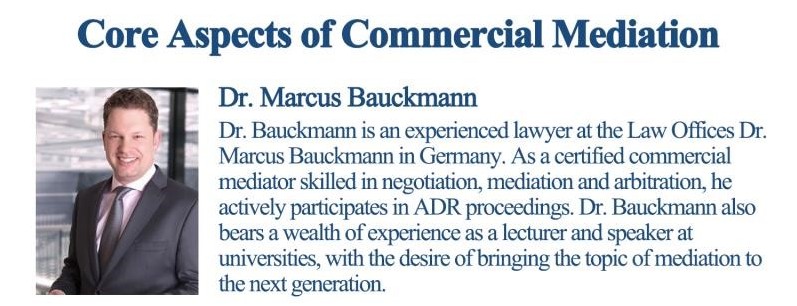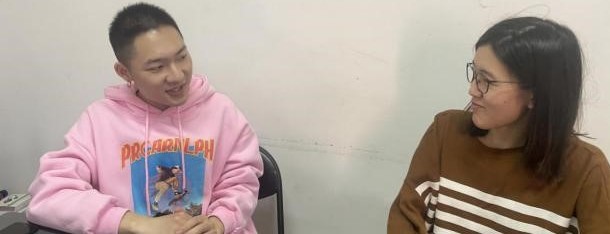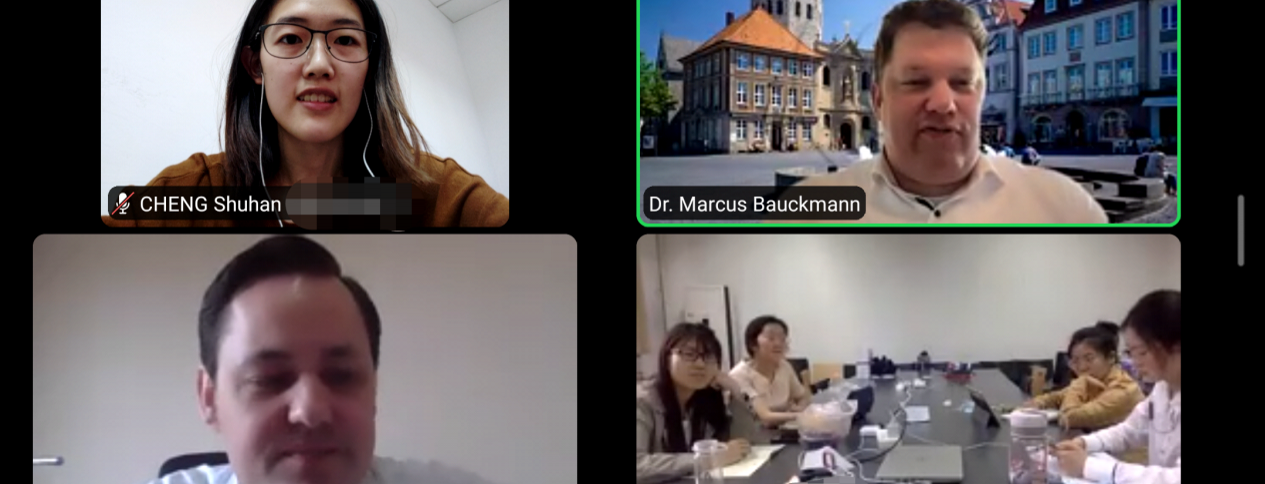On 10 May 2021, the China-EU School of Law’s Negotiation Class welcomed Dr. Marcus Bauckmann to give a guest lecture on the Core Aspects of Commercial Mediation. This special session was given by Dr. Marcus Bauckmann, an experienced lawyer with extensive experience in dispute resolution as a mediator and arbitrator, who also runs his own firm in Germany, and was hosted by Monty Silley, the Executive Co-Dean of CESL.

This special seminar included three parts. To begin with, Dr. Bauckmann designed a game in which he divided the students into groups of three. Each group was given a role-play to practice a short negotiation, trial and mediation based on the same given case facts. Students participated both online and in the classroom at 412 in the Mingfa building. The scene was very lively as the students actively participated from the start. Students were able to then compare the results of the case from a negotiation, a judgement, and finally, a mediated settlement. Through this activity, students realized that negotiation is not only about what happens, but that information gathering and seeking creative solutions is significant to the success of dispute resolution, which can often achieve better outcomes for both sides than litigation. Therefore, it is important to be well-prepared and open-minded before sitting at the negotiating table for any dispute or deal-making.

(classroom mediation scene)
In the second part, Dr. Bauckmann focused on the theoretical knowledge of negotiation and mediation. Dr. Bauckmann further introduced the concept of ‘conflict’ and the three dimensions of conflict: content, relationship and process. He emphasized that in order to avoid parties ‘backtracking’ after the mediation, mediators often do not initiate solutions or make relevant recommendations to resolve the dispute, but rather leave the substance and outcome in the hands of the parties themselves as far as possible. The mediator's intervention in the conflict is therefore primarily at the level of the process, rather than at the level of the content.
Dr. Bauckmann also suggested that conflicts can end in one of three ways: win-win, win-lose or lose-lose, and what we need to do is to try our best to achieve the first result. With this in mind, in negotiation or mediation, it is important to pay particular attention to the reasons behind the other party’s ‘interests’ rather than the ‘positions’ they may initially reveal; to focus on the possibility of alternative views rather than on stubbornness; and to focus on communication rather than on purely self-interest. Crucially, the broad basis of negotiation is the existence of a conflict and the resulting balance of power.
Moreover, Dr. Bauckmann introduced a number of concepts related to mediation and negotiation, including BATNA (Best Alternative to Negotiated Agreement), ZOPA (Zone of Possible Agreement), Maslow’s Hierarchy of Needs, the Four Sides Model of communications and so on. These concepts are essential to the understanding and practice of mediation and negotiation skills.

In the third part, Dr. Bauckmann showed a video of a real mediation (a non-confidential recording) to give the class a more immersive experience to the style of mediation and a clearer understanding of the process and the mediator’s role.
During the class, the students were impressed by Dr. Bauckmann’s extensive experience and style of teaching. Apart from the simulations, Dr. Bauckmann interacted with the group several times using multimedia such as the Zoom chat box and with different pictures and videos, which highly promoted to the input and consolidation of the knowledge being shared.
During the final Q&A session, students asked various questions and Dr. Bauckmann answered them all patiently and thoroughly. In the end, the students were inspired to develop their skills as future negotiators and mediators. Dr. Bauckmann hoped that the pandemic would soon be over and looked forward to meeting the students in person one day.
Contributed by: YE Yabing, CESL Double-Master student from 2019 intake
